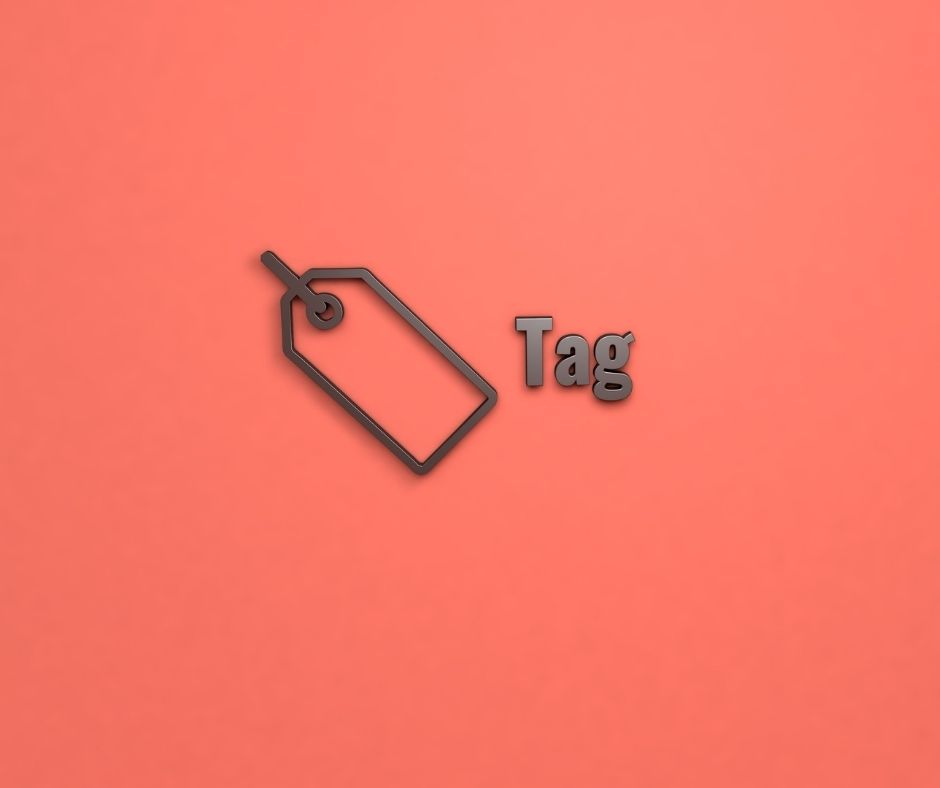What is Tag Management and Why Does It Matter?

One of the reasons that all of the biggest brands we know and love are successful is excellent data management. Businesses need to adapt to leveraging the insurmountable data they receive on a daily basis because without proper data acquisition and data management, it is close to impossible to drive growth.
Tag management is one of the strategies you can use to manage your data and optimize your processes for success.
What is tag management?
Firstly, what is a tag?
Also referred to as a pixel, a tag is a piece of JavaScript code that collects unique data from every individual that visits your online platforms. These platforms include your web pages, landing pages, and mobile apps.
Primarily, tags have been designed to gauge a website’s performance. From tracking conversion rates of particular web pages to remarketing and ads performance, tags can help marketers gain insights into real-time customer interactions and gather data for further action.

What is tag management?
Tag management is the process of organizing your tags to ensure that they function efficiently. A tag management system (TMS) is an interface that enables marketers and business owners to understand and deploy tags with ease across a variety of platforms.
Recognized by the market as early as 2012, tag management has been validated as one of the most efficient elements to improve a website’s performance. By separating website’s marketing activities from the site’s infrastructure development, tag management has been proven to improve web page’s performance, boost marketing campaigns results, enhance retargeting, and improve the understanding of real-time customer data analytics.
Since integrating multiple tags for a single page can decrease a web page’s performance, the need for simpler tag management has become a business essential.
With multichannel marketing becoming more popular, businesses have been witnessing many varied touchpoints for their audience, driving them to integrate tag management into their overall marketing strategy.
How does it work?
Most tag management software formats have a tag marketplace. Let’s take a look at the steps you’ll need to take with Google Tag Manager to use it to optimize your tags.
- Step 1: Create your Google Tag Manager account
- Step 2: Append the code given by Google into specific web page codes where you want to deploy the tags.
- Step 3a: Create tags
- Step 3b: Configure tags
- Step 4: Choose the type of tag you want to deploy (or create custom tag types)
- Step 5: Attach your Google Analytics rank to your tag
- Step 6: Choose triggers to activate tags’ specific web pages to record customer responses (activating this notifies you every time a tag is triggered)
- Step 7: Save and activate your tags by clicking on the submit button
You can also add container names and descriptions to keep your tags organized. This practice helps you deploy selected tags without having to update or change the website code.
When marketers integrate tags into their desktop web pages, as well as their mobile applications and sites, it supports their prospects through live chat, advertisements, and featuring product recommendations to advance and automate online business processes.
With social media’s prevalent use of other forms of tags, it is easy to have preconceived ideas about tag management. However, you must be aware of the differences between these tags and others that you may have heard of including hashtags, blog tags and keyword tags. These are not the same thing and cannot be managed by a platform like Google Tag Manager.
Why does it matter for your business?
Helps you manage your data
With massive amounts of data being created daily by people all over the world, businesses need to keep up the influx of information they can use to better connect with their clients. Structured data is growing by 40 percent globally on a yearly basis while unstructured data is escalating at an astounding 80 percent. With tag management, you can capture qualitative data in real-time and process it to help your business grow.
Data management is one of the most important elements that contribute to an organization’s success, but transforming it into useful information is not everyone’s forte. Working with a tag management company will help you capture, track, manage, and analyze your data in many ways.

Allows you to create a solid marketing stack
Before we delve in deeper let’s understand what a marketing stack is and how can it help your business. A MarTech (marketing technology) stack comprises applications, online tools, and software that helps marketers reinforce marketing processes.
From helping marketing teams save time and money, scale up, and automate mundane tasks to applying machine learning principles and automating steps based on logic, tag management systems help marketers build, measure, optimize, and track their MarTech stack processes effectively.
There is no hard and fast rule that a stack should be the same for every business. Through tag management you can create a concrete marketing stack for your video game effectively.
Businesses need to focus on the following recommendations while building their marketing stacks:
- Set clear expectations from every tool they include in their stack
- Adopt the tools that they have hands-on experience with
- Familiarize with tag management systems and customer data platforms
- Concentrate on recycling and reusing data pipelines
- Consistently monitor and test all the integrations in the processes
- Make the stack one of the key pillars of their marketing strategy
Optimizes your workflow
Workflows are the engines that keep your business running. A hindrance be it big or small, can interrupt your overall productivity and hurt your performance. With tag management you can create campaign processes faster and make your workflows more agile. This will also help you speed up your campaign distribution processes.
Let’s take a look at a quick example of an organization that deployed tag management. Jobs2Careers, a job search online platform, incorporated Google tag management in its processes and witnessed a drastic increase in its productivity and 100 percent boost in its conversion rate.
Improve website performance
More than 50 percent of website visitors abandon websites that take three seconds or more to load. With such lethargic speed, your website’s visibility in the search results will eventually dwindle, impacting your conversion rates negatively.
Additionally, 67 percent of customers also attribute purchase abandonment online to slow page load times. By incorporating tags in your code, you can declutter your website’s code, minimize code calls to other resources, swiftly fix any of your site’s errors effortlessly, and increase conversions significantly.
Save time, money and resources
Deploying multiple tags individually eats your time away as your team has to invest time in researching, executing, and testing tags continuously to ensure that everything runs as expected. Marketers who single-handedly manage websites might be lost with such technical complexities.
With just a single line of code, tag management can drastically decrease manual deployment of JavaScript, HTML files, and reduce the overall time required to quality test it. A majority of users witnessed that incorporating TMS helped them reduce their cost significantly.
Airbnb Inc, the online marketplace for vacation rentals, lodging, and holiday experiences deployed tag management as part of their data management protocol. This move helped the company improve its vendor data collection by a significant 90 percent.

What does the future hold for tag management?
Valued at $569.5 million in 2017 alone, the tag management market is slated to hit an astonishing $1.28 billion by 2023 growing at a whopping 14.2 percent annually. With the rising need for data governance policies across various trade blocs around the world, the emphasis being laid on creating better customer experiences and the emergence of designing a cohesive business environment for growth are the major driving factors for the growth of the tag management industry.
Additionally, the ever-growing smartphone industry and mobile data consumption has also been contributing to the demand for tag management in customer-centric industries.
One of the prominent reasons for the growth of this market is the adoption of multichannel marketing by businesses on a large scale. From healthcare, banking and financial services to retail, ecommerce, media, and entertainment industries, tag management has been instrumental in streamlining companies’ workflows in many ways.
Video gaming companies can also capitalize on the benefits that tag management offers to understand consumer behaviors better and offer cutting edge gaming experiences and products to their prospects and existing customers.

Start tracking like a pro
If game marketing wasn’t hard enough, add analytics into the fray! This is a crucial part of your campaign, and something you’ll need to master if you want to get results. But it’s dangerous to go alone! Take this: The Game Dev’s Complete Guide to Game Marketing Analytics.
For businesses that want to reach their marketing goals, understanding tag management is essential. After reading this guide, tag management may seem easy to incorporate into your business but it can be quite challenging to deploy if you’re new to it.
Partnering with a game marketing company that understands your business and the technicalities of tag management can help you fast-track your process without any hassle to put you ahead of the competition.
Game Marketing Genie is an accomplished video game marketing and tag management solutions provider that can back you up with a strong team and handle your marketing from end to end.



